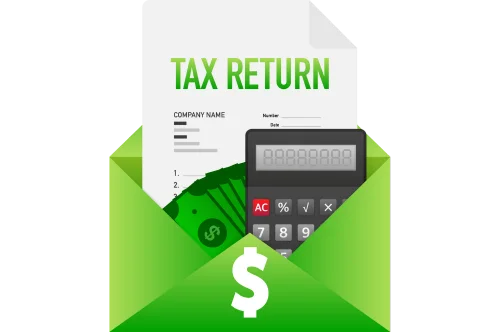Top 10 Tax Filing Tips to Make This Tax Season Stress-Free
Introduction
Tax season can feel overwhelming, but with a few proactive Tax Filing Tips, the process can be easier, more efficient, and stress-free. Whether you’re an individual taxpayer or a business owner, following these Tax Filing Tips can help you stay organized, save money, and ensure compliance with tax laws. Let’s dive into some essential Tax Filing Tips for a smooth tax filing experience!
1. Start Early to Avoid Last-Minute Stress
One of the most effective Tax Filing Tips is to begin the process as early as possible. Starting early gives you plenty of time to gather all necessary documents, review your financial activities, and ensure that you don’t miss out on any deductions or credits. It also reduces stress by allowing you to double-check your work before submitting, which lowers the chance of errors.
Early filers tend to get their refunds faster, too, since there’s less demand at the beginning of tax season. Filing closer to the deadline often leads to longer wait times, as tax authorities are handling a surge of last-minute filings.
2. Gather All Required Documents
Preparation is key to smooth tax filing. Gather all relevant documents beforehand, including:
- Income Statements: or other statements for income from self-employment, dividends, or rental properties.
- Expense Documentation: Receipts for deductible expenses like business expenses, charitable donations, medical expenses, and education costs.
- Previous Tax Returns: These can help you ensure consistency and act as a reference for deductions and credits.
- Investment and Bank Statements: These are crucial if you’ve earned interest or capital gains.
Having all these documents ready can save you significant time and help prevent mistakes that might lead to penalties or audits.
3. Take Advantage of Tax Deductions and Credits
Tax Filing Tips for reducing your taxable income include understanding deductions and credits. Tax deductions reduce your taxable income, while credits reduce your tax owed, directly increasing your refund potential. Familiarize yourself with deductions and credits available to you, such as:
- Standard Deduction vs. Deductions under Section 80C, 80D, etc.: The standard deduction offers salaried individuals a flat deduction, while deductions under sections like 80C, 80D, etc., allow for specific investments and expenses to be claimed, which may be more beneficial depending on your financial activities.
- Education Deductions and Benefits: Under Section 80E, individuals can claim deductions on interest paid for education loans, making higher education more affordable. Additionally, certain scholarship grants are tax-exempt under Section 10.
- Child and Dependent Care Expenses: India does not offer a specific tax credit for childcare expenses. However, expenses related to the education of children may be eligible for deductions under Section 80C, such as tuition fees.
- Retirement Contributions: Contributions to retirement accounts like the Public Provident Fund (PPF), National Pension System (NPS), and Employee Provident Fund (EPF) are deductible under Sections 80C and 80CCD, providing tax-saving benefits while supporting long-term financial security.
Each of these options reduces taxable income or tax owed, allowing you to maximize your refund legally.
4. Consider Tax-Advantaged Accounts
Another essential tax-saving tip is to invest in tax-advantaged accounts available under Indian tax laws. Contributions to accounts like the Public Provident Fund (PPF), National Pension System (NPS), or Employee Provident Fund (EPF) can significantly reduce your taxable income, leading to immediate tax savings. NPS, in particular, offers multiple benefits, as contributions are deductible under Section 80CCD, and it provides tax-free growth with partial tax-free withdrawals at retirement.
Investing in retirement-focused accounts such as PPF and NPS not only helps lower your taxable income under Sections 80C and 80CCD but also supports long-term financial security, making them smart choices for building a robust retirement fund.
5. Double-Check Your Return for Accuracy
A key tax filing tip is to be meticulous when completing your income tax return. Errors can delay processing, increase the likelihood of scrutiny, or even result in penalties. Take the time to double-check your:
- Permanent Account Number (PAN) and Aadhaar details to ensure accuracy
- Bank Account Information for direct deposit of refunds
- Income Calculations (especially if not using tax software)
- Deductions and Exemptions under Sections 80C, 80D, and other relevant sections
Even small mistakes can create larger issues, so reviewing your return thoroughly before submission is essential to avoid complications and ensure accuracy.
6. Utilize Tax Filing Software
One of the most useful tax filing tips is to leverage tax filing software. These tools simplify the process by guiding you through forms, performing calculations, and suggesting deductions or exemptions based on your inputs. Most software solutions also have built-in error-checking features, which help reduce mistakes. Plus, they save time by storing information year after year, making future filings faster.
In India, popular tax filing software includes ClearTax, TaxBuddy, and Tax2Win. Many of these platforms offer free versions for simple individual tax situations, while paid versions provide additional support for businesses and more complex tax filings. Using these tools can help ensure accuracy and make the tax filing experience much smoother.
7. Keep Track of Changes in Tax Laws
Tax Filing Tips can vary as tax laws frequently change. Even minor adjustments can impact your filing. Staying informed about tax law changes can help you take advantage of new benefits while ensuring compliance.
One easy way to keep up is by subscribing to updates from reliable tax news sources or consulting with a tax professional who can inform you of relevant changes.
8. Consider Professional Help for Complex Returns
If you have a complex tax situation, it may be worth consulting a tax professional. Situations involving self-employment, multiple income sources, investments, or property sales can benefit from expert guidance. Professionals can ensure you’re not missing any opportunities to save and help you navigate complex forms, maximizing your potential refund.
A tax professional’s fees are often outweighed by the benefits they provide, including peace of mind and potentially higher refunds. Make sure to check their credentials and select someone with experience in your specific tax situation.
9. File Electronically and Opt for Direct Deposit
Filing electronically is not only faster but also more secure than filing a paper return. Most tax software and online platforms offer electronic filing options that reduce errors and make the filing process easier. In addition, choosing direct deposit for your refund ensures a quicker payout, as you won’t have to wait for a check in the mail.
Direct deposit also allows you to split your refund across multiple bank accounts, helping you manage funds according to your financial goals.
10. Keep Records of Your Filed Returns
Lastly, remember these Tax Filing Tips: keep records of your tax returns and all relevant documents for at least three to seven years. This helps if you ever need to reference past filings, respond to an audit, or verify income information. Having a well-organized record system makes filing future taxes easier.
By following these Tax Filing Tips, you can streamline your tax filing process, maximize your deductions, and avoid potential issues with tax authorities. Taking the time to file correctly and efficiently pays off, helping you secure a potentially larger refund and reduce stress during tax season.
Our Tax Services

ITR Filing
ITR Filing services provide full assistance with Income Tax Return submissions, ensuring accurate and timely compliance with all tax regulations and statutory requirements for both individuals and businesses.

Tax Audit
A tax audit reviews financial records to ensure compliance with tax laws, verifying income, deductions, and expenses. It minimizes errors and helps businesses avoid penalties, ensuring accurate tax reporting.

Company Audit
A company audit is an independent check of financial statements, confirming accuracy and regulatory compliance. It enhances transparency, boosts trust, and identifies potential issues in a company’s finances.



